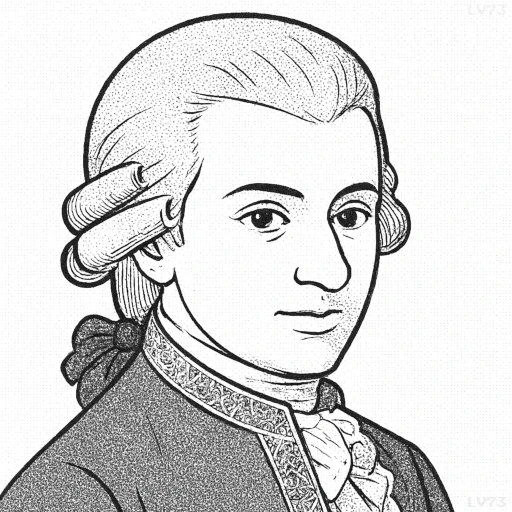“My sole recreations consist in dancing English hornpipes and cutting capers. Italy is a land of sleep; I am always drowsy here.”

- January 27, 1756 – December 5, 1791
- Born in Salzburg (Austria)
- Composer
table of contents
Quote
“My sole recreations consist in dancing English hornpipes and cutting capers. Italy is a land of sleep; I am always drowsy here.”
Explanation
In this humorous and somewhat playful quote, Mozart contrasts his energetic and lively personality with his experience of being in Italy, which he describes as a “land of sleep.” The reference to dancing English hornpipes and cutting capers suggests that Mozart found joy in physical activity and expressive movement as a way to relax and unwind, reflecting his playful nature. However, he seems to feel a sense of lethargy or boredom in Italy, possibly indicating that he was not entirely comfortable or inspired by the environment around him at the time. This remark may reflect Mozart’s restlessness and the difficulty he sometimes faced in fully engaging with his surroundings, despite Italy’s cultural significance for opera and music.
Historically, Italy was a central hub of musical and artistic achievement, and many composers, including Mozart, spent time there to immerse themselves in Italian opera traditions. However, Mozart’s remark about being drowsy in Italy suggests a more personal, perhaps disconnected, experience. His feelings could be attributed to his struggles with patronage, financial instability, or even a lack of engagement with the social norms of the region. This statement could also reveal his ironic wit in contrast to the common view of Italy as a vibrant and inspiring place for artists.
In modern terms, this quote can be understood as a reflection of how personal temperament can shape one’s experiences in different cultural contexts. Like Mozart, people today may feel energetic and lively in certain environments and apathetic or uninspired in others. His comment about drowsiness in Italy contrasts with the common cultural expectation of Italy’s dynamic artistic atmosphere and serves as a reminder that individual experiences—no matter how renowned the place—can vary widely. It also highlights how people often seek out recreations or hobbies that revitalize them, just as Mozart did with his lively dancing.
Would you like to share your impressions or related stories about this quote in the comments section?

